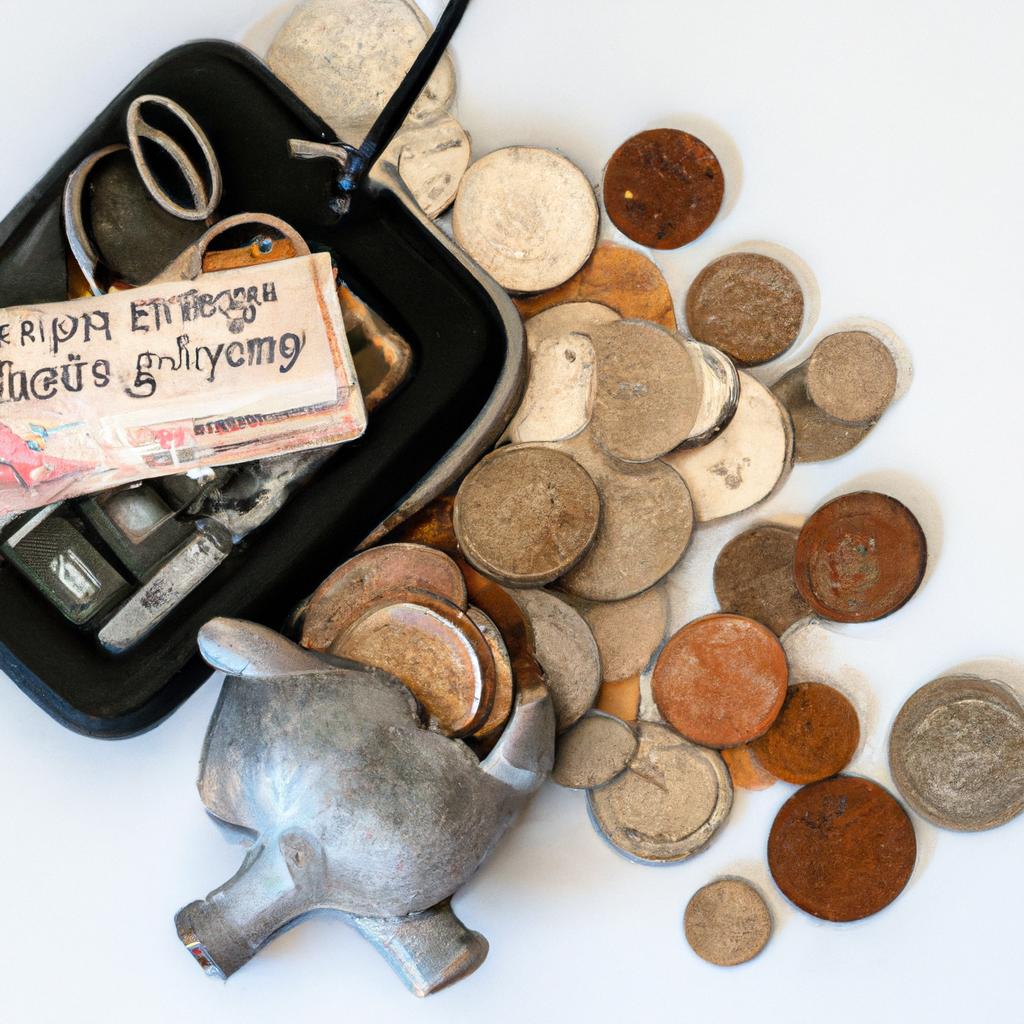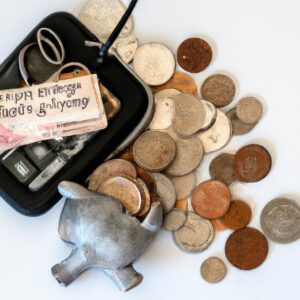Introduction to Travelling on a Budget
Travelling is one of the most exciting and rewarding experiences one can have. But for many, it may seem as if embarking on an international journey requires an unspoken high budget. However, this is far from true – travelling on a budget is possible and even encouraged by many! With careful planning and creative solutions, you can embark on your dream journey without breaking the bank.
This guide is a resource that will equip you with the knowledge and tips you need to save money while travelling. We will outline the various ways to reduce costs in terms of destination, travel modes, accommodation, food and drinks, activities, insurance and final checklists. Read on to learn how you too can make your dream vacation come true without overspending.
Choosing Your Destination: How to Optimise Your Travel Experience While Staying Within Budget
When it comes to travelling on a budget, one of the most important decisions is to pick the right destination. With so many beautiful places to choose from, it can be hard to decide. But, it pays off to take the time to carefully consider all your options, since the right destination can make or break your travel budget.
Begin by doing your research. There are plenty of websites and resources that provide information about the cost of living, visa requirements, and tourist attractions in various destinations. These reviews can give you an indication of what sort of experience and costs you can expect at different locations. Be sure to compare the prices of accommodation, food, transportation, and other expenses for each destination you’re considering.
Next, decide on the type of vacation experience you’d like. Some destinations may offer cheaper prices than others, but not the activities or attractions you are looking for. Consider whether you’d rather stay in a big city, go on a beach vacation, explore a nature reserve, or venture out to a less-explored destination.
It also helps to look for destinations with fewer crowds. Bigger cities have more people, which can push up prices and take away from your desired experience. On the other hand, some smaller destinations still offer incredible experiences, and you often get great deals when booking flights and hotels.
Finally, check for any airline or hotel loyalty programs you may be eligible for. Most major airlines and hotel chains offer reward points, discounts, and other perks for frequent flyers and customers. Make sure to sign up for these programs if you travel regularly, as they can help you save significantly while travelling on a budget.
Travel Modes
Travelling on a budget doesn’t necessarily mean cutting corners on your transport. There are plenty of cost-effective options when it comes to getting around, allowing you to enjoy your journey without breaking the bank.
For short journeys, consider taking public transport such as buses and trains. Each city offers different fares according to which type of transport you use, so research ahead to get the best deals.
If you plan on travelling between cities or countries, consider flying low-cost. Many large airlines offer special deals and discounts for students or those with families, so keeping an eye on their websites can save you a lot of money. Alternatively, booking in advance also gives you the opportunity to take advantage of cheaper tickets.
Lastly, road trips are often a great way to reach your destination without spending too much. Carpooling is also becoming increasingly popular, reducing the overall cost and allowing travellers to go further distances with fewer resources.
Accommodation to Fit Your Budget
When travelling on a budget, it’s important to plan your accommodation carefully. It is often the most expensive part of any trip, so it pays to do your research and find the best option to fit within your budget. There are many ways to save money on accommodation when travelling, and finding the right one for you is essential to keeping costs low!
Hotels and Hostels
Hotels and hostels can range in price depending on the location and facilities available. A cost-effective accommodation choice could be staying in a hostel, rather than a hotel. Hostels tend to be cheaper than hotels and offer a range of facilities such as shared rooms, kitchens, and common areas.
Online Bookings
Online booking sites such as Booking.com and Hotels.com are great places to look for accommodation at discounted prices. They often come with special deals and discounts, so make sure to check out the website when you’re looking to book a place to stay. Some sites even offer loyalty points and free nights, so it’s worth keeping an eye out for these.
Local Connections
If you know someone who lives in the area, that’s another great way to get cheaper accommodation. You might be able to stay with friends or family, or get referrals from people you know who have connections with local businesses. This is an especially great option if you’ll be staying for an extended period of time.
House-sitting
House-sitting is another cost-effective option for accommodation. This involves staying in someone else’s home while they are away and taking care of their house and/or pets. You can usually find these opportunities online, for longer stays. Be sure to do your research and read reviews before committing to a house-sitting job.
Couchsurfing
Couchsurfing is another great way to save money on accommodation. This involves staying in someone else’s home (often for free!) in exchange for doing some light housework or helping out with chores. It’s a great way to meet new people and experience local culture. Again, make sure to do your research and read reviews before committing to a Couchsurfing stay.
Food and Drinks: Cost-reduction tips and advice
Eating well during your travels is essential not only for your health but also for a pleasant experience. However, food and drinks can quickly eat away at your budget, especially if you’re visiting tourist hotspots.
The key to reducing costs is to be mindful when it comes to what you’re eating and drinking. Here are a few tips to save money while still getting the most out of your food experience:
- Take advantage of happy hours at local bars or eateries where discounts are available;
- Research local food markets and street vendors, which typically offer delicious and affordable dishes;
- Bring some snacks from home to avoid buying food in overly touristy areas;
- Cook meals for yourself and the people you are travelling with;
- Limit alcoholic drinks, as they add up quickly;
- Bring a reusable water bottle. Not only will this save money, but you’ll also be reducing plastic waste.
By following these tips, you’ll be able to enjoy delicious food and drinks without breaking the bank!
Activities: Suggestions on Low/No-Cost Activities
Traveling on a budget doesn’t mean missing out on all the fun – there are plenty of enjoyable activities that won’t break the bank. To make the most of your budget, research destinations thoroughly before you go, and find out if there are any free activities nearby. Look for museums, parks, and outdoor events in the area, as these are often free or low cost.
You don’t necessarily have to spend money to have a great time. Get creative! Think about activities such as sightseeing, people-watching, exploring local markets, playing sports with locals, volunteering, or joining in on group picnics. Make sure you take advantage of any discounts offered at local attractions, and always check if there are student discounts available.
If you’re feeling adventurous, try booking a guided tour or going on a hike. Consider backpacking trips, which can be a great way to cut down on costs. If you plan ahead, you may also be able to get discounts on your travel and accommodation expenses.
If you are travelling with family or friends, try planning group activities to save costs. This could include going on bike rides, visiting local attractions, or having a picnic in a park. These activities will help you bond with each other and create lasting memories without spending a fortune.
Insurance: Highly Recommended Coverage and Ways to Save Costs
Travel insurance is essential for any traveler, especially when travelling on a budget. It can protect you from the unexpected including medical costs if you get ill or injured, natural disasters, flight cancellations, loss/theft of baggage and more. While it may seem like an additional cost that doesn’t fit into your budget, it will pay off in the long run if something goes wrong.
For starters, check with your health insurance provider to see if they offer coverage for international travel. If not, comparison shop for the best travel insurance package by researching different providers and getting quotes that include deductibles and additional coverage. Research illnesses common to the area you are visiting, such as malaria in sub-Saharan Africa and dengue fever in Southeast Asia, and make sure you have the right coverage.
To save money on travel insurance, look for multi-trip policies that cover repeat trips over a certain period for a flat rate, rather than buying individual policies. You can also save money by raising the deductible, or the out-of-pocket amount you pay before the insurer covers any expenses. Additionally, look for deals and discounts, such as seniors discounts or package deals that include travel insurance with airfare or hotel bookings.
Although there are ways to save cost on travel insurance, having it can prevent serious financial losses and make your trip much less stressful, so don’t cut corners here. Make sure you understand the terms of your policy so that you are prepared in the event of an accident or illness. In the end, you will be thankful you invested in travel insurance.
Further Money-Saving Tips
Travelling on a budget can be daunting, but with the right advice, you can save money while still having an unforgettable journey. Here are some useful tips to help you save money when you’re travelling:
- Book Ahead: Booking flights and trains ahead of time allows you to take advantage of discounts and promotions. If possible, try to book as early as possible.
- Compare Prices: Make sure you compare prices before settling for a travel deal. Look online for the best deals and discounts.
- Choose Cheaper Destinations:Consider less popular destinations in order to get great deals on accommodation, flights, and other travel expenses.
- Sign Up For Rewards Programs: Many airlines and hotels offer rewards programs that can earn you discounts, free meals, and other benefits.
- Pack Lightly: Having fewer items to carry will save you on airline baggage fees.
- Cook Your Own Meals: Eating out can be expensive. Try to shop for groceries and cook your own meals whenever possible.
- Stay Flexible: Be flexible with your travel dates and times to find the best possible fares. Consider off-peak travel periods and avoid the busiest days.
- Research Discounts: Research available discounts and use them to save money. Many attractions offer student discounts, family discounts, and senior discounts. Don’t forget to ask about any discounts that may apply.
Following these tips will help you keep your travel costs down when you’re planning a trip. Whether you’re travelling for business or pleasure, making use of these money-saving tips will ensure that your next trip is more enjoyable and affordable.
Traveling on a budget can be an exciting and rewarding experience, but it requires planning and research to make sure you get the most out of your vacation while also saving money. The tips and advice outlined in this guide aim to help you make the most out of your vacation while cutting costs whenever possible.
Before you start planning, consider exactly how much you want to spend on your trip. This will help you set a realistic budget and determine the kind of activities, accommodation, transportation, food, drinks and insurance you can afford. From there, choose your destination carefully, choosing one that contrasts both affordable travel modes and places to stay or cost-effective activities.
As far as travel modes are concerned, it’s not always necessary to opt for the fastest or most convenient option. Many times, cheaper alternatives such as trains, buses or carpooling can take you to the same destinations without costing a fortune. Additionally, when it comes to accommodation, booking in advance can sometimes offer discounts or save money on peak season rates. There are online resources available to compare prices and find the most budget-friendly places to stay.
Food and drinks often make up a significant portion of a traveler’s expenses. Take advantage of local markets and restaurants, and look into daily specials or deals. Opting to cook is also one way to save money. Research activities that offer discounts or are free of charge. Discount cards, coupons and other types of promotions are always worth looking into.
Insurance is highly recommended when traveling on a budget. Look for companies that offer incentives or discount packages. Also, ask family and friends for suggestions and look into reviews from trustworthy sources.
Finally, consider resourceful and money-saving tips such as using public Wi-Fi, being aware of exchange rates, and packing light. Keep track of your spending and look for more ideas online before heading out of the door.
By using this guide and following the tips outlined here, you’ll be able to make the most of your vacation without blowing your budget.
When writing about any topic, it is important to ensure that your sources are reliable and accurate. To help you find the best resources regarding travelling on a budget, we have compiled a list of external guides and websites which can be consulted for additional information.
To start off, the MoneySavingExpert.com website is packed with useful tips and advice for budget-conscious travellers. The comprehensive guide covers everything from finding discounts on travel tickets to best practices for saving money while abroad.
The Nomadic Matt blog is also an excellent resource for budget travellers. This site offers practical tips and strategies for more enjoyable (and affordable!) trips around the world. It includes articles on topics such as finding cheap flights, slashing accommodation costs, and more.
Travellers should also consider consulting online travel forums. Individuals who wish to save money can ask questions and get valuable advice from experienced travellers on platforms such as Lonely Planet’s Thorntree or TripAdvisor.
Finally, the official websites of embassies and consulates of the countries you plan to visit can provide insight into the visa requirements and other important information regarding travelling to the area.
By making use of these reliable sources of information, travellers should be able to effectively plan their budget-friendly trips with confidence.
FAQs and Troubleshooting
Travelling on a budget isn’t always easy. You may encounter some common issues during your travels that can be difficult to navigate if you’re on a tight budget. This section will provide advice on how to handle these situations without breaking the bank.
One common issue is unexpected costs related to transport, accommodation, and activities. You may also need to plan ahead, particularly when it comes to finding cheap flights or booking accommodation. Finally, unforeseen events such as natural disasters, political unrest, or pandemics may require extra preparation and precautions.
To ensure that your budget doesn’t blow out, it’s important to be prepared for the unexpected. Booking flights and accommodation in advance can help you to secure a good rate. You should also check restrictions wen booking activities, as these can often incur additional costs. Make sure to research all available options and compare prices before settling on one.
Finally, it’s important to be aware of possible disruptions due to natural disasters, pandemics, or political unrest. Some countries have regulations that could prevent you from travelling or require you to quarantine upon arrival. It’s best to stay up to date with the latest news in the country you are visiting, and plan accordingly to avoid unexpected trips to the emergency room.
Final Checklist for Travelling on a Budget
Travelling on a budget doesn’t have to be stressful or boring. Here are some quick tips to help you keep your money in check and make the most out of your journey.
- Plan ahead – research your destination, compare prices and book your flights early.
- Make the most of deals and discounts – lookout for promotional fares and discounts offered by airlines or check out sites like Priceline or Expedia.
- Opt for public transportation – It can help you save a lot of money while allowing you to get to your destination faster.
- Choose accommodation wisely – Consider staying at a hostel or in a private room rather than a hotel if you’re travelling solo. You can also look into couch surfing or homestay websites for cheaper alternatives.
- Eat affordable but delicious food – Try the local cuisine or buy food from the local markets instead of eating at restaurants every time.
- Look for free activities – Don’t forget to explore the city on foot. Many cities have parks, museums, and attractions that often don’t require an admission fee.
- Secure travel insurance – This is recommended to protect yourself from any unexpected costs or delays. Compare prices and choose the best coverage for your needs.
- Stay hydrated and healthy – Drink plenty of water and get enough rest to make sure you’re able to enjoy your travels without feeling worn out.
These are just a few tips to get you started. Make sure to do your own research and come up with creative ways to save money while still having a great time travelling!
comments: 0



